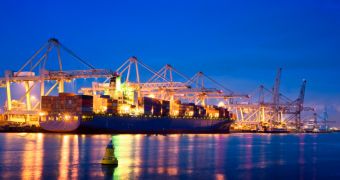This past April 8, the Environmental Protection Agency in the United States went public with the news that it was to award a total of $4.2 million (€3.05 million) in grant funding for the implementation of clean diesel projects at a total of 6 ports in the country.
On its website, the Environmental Protection Agency details that, presently, most of the busiest ports that are operational in the United States either sit very close to, or are part and parcel of major metropolitan areas.
This might not be such a big problem if it were not for the fact that, at least for the time being, diesel-powered equipment and machineries are a common sight at pretty much all of the country's ports.
Due to the fact that such diesel-powered equipment and machineries have been documented to release both greenhouse gas and carbon emissions, specialists fear that, in time, people who live close to ports will develop medical complications as a result of exposure to air pollution.
“Most of the country’s busiest ports are located in or near large metropolitan areas and, as a result, people in nearby communities can be exposed to high levels of pollution,” the United States Environmental Protection Agency writes.
“For example, diesel powered port equipment can seriously impact air quality for nearby residents and generate substantial greenhouse gas and black carbon emissions,” it goes on to argue.
Information shared with the public says that the 6 ports that are to benefit from the $4.2 million in grant funding made available by the Agency are, as follows: the Port of Seattle, the Port of Hueneme, the Port of Tacoma, the Maryland Port Administration, the Virginia Port Authority, and the Port of Los Angeles.
According to the Agency, this money will serve to retrofit, replace, or repower diesel engines that are currently up and running at said facilities. It is expected that, once these measures are implemented, local air quality will be improved and greenhouse gas emissions, especially carbon emissions, will be reduced.
Apart from agreeing to invest in helping ports in the United States reform their ecological footprint, the Environmental Protection Agency wishes to roll out an initiative intended to recognize ports that are taking steps towards greening up their ways, and to make it easier for such facilities to keep tabs on their environmental impact with the help of emission and energy use measuring tools.
“Ports are the main gateway for U.S. trade and are critical to our country’s economic growth, yet the communities surrounding ports face serious environmental challenges,” Agency Administrator Gina McCarthy said in a statement. Furthermore, “Today we demonstrate that through collaboration and innovation we can achieve the goals of economic growth and environmental stewardship.”

 14 DAY TRIAL //
14 DAY TRIAL //